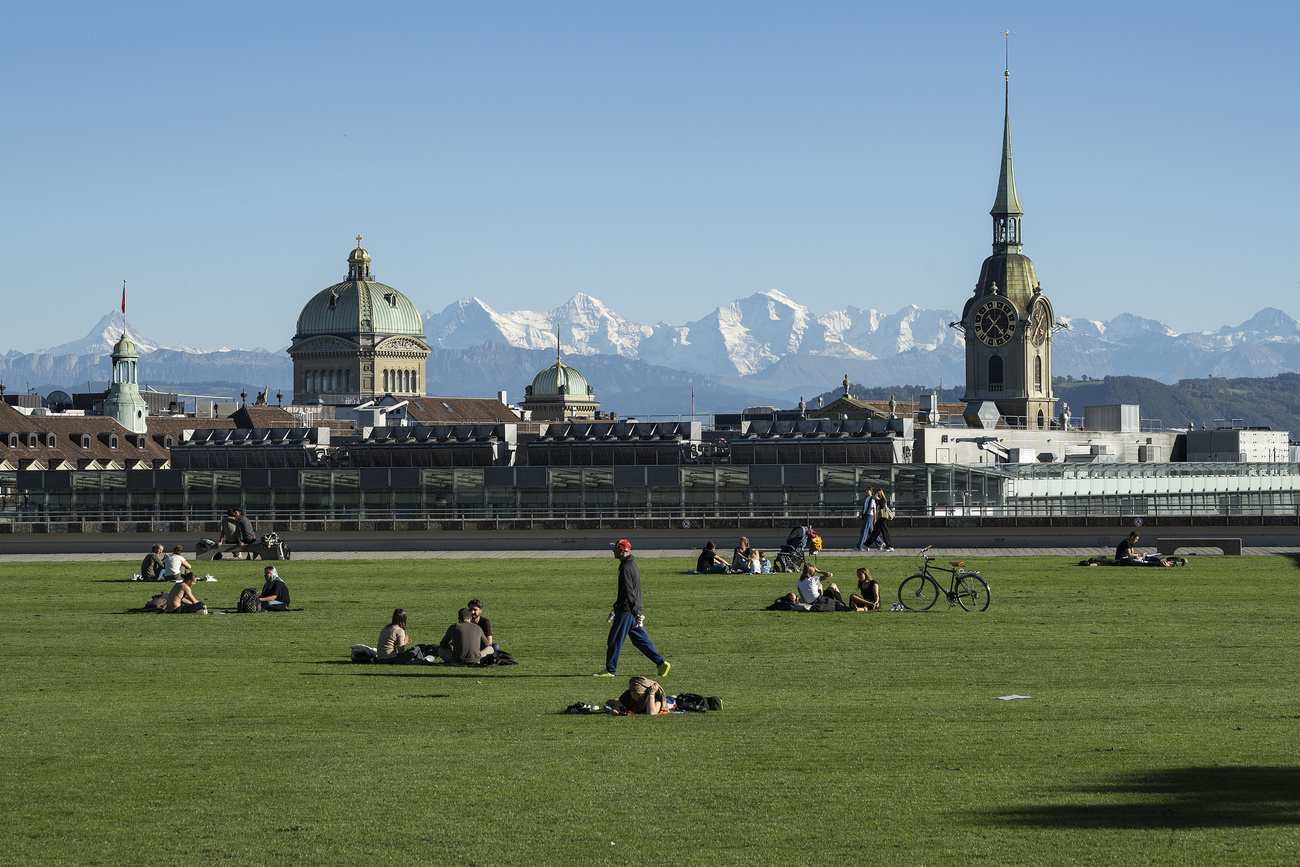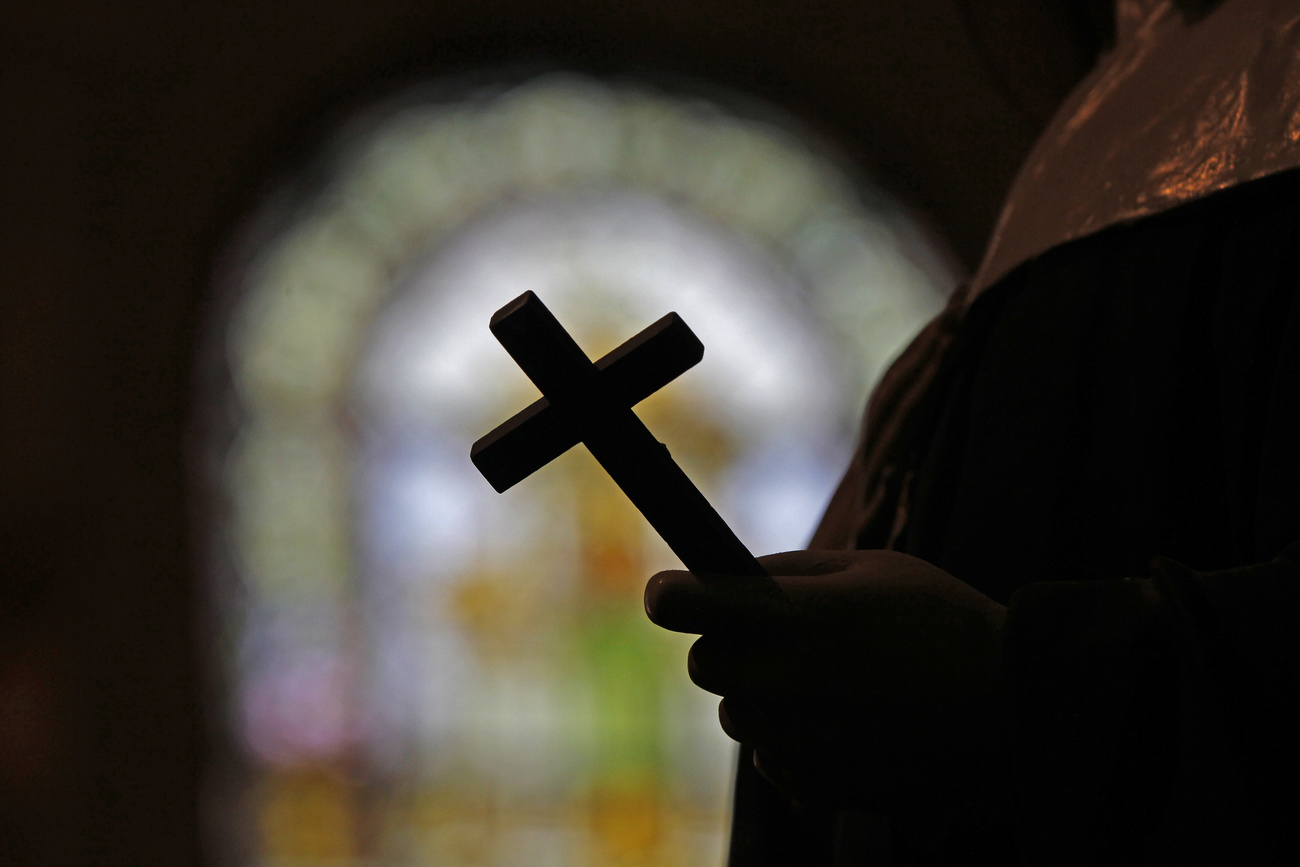
Swiss Catholic Church Conference rejects financial sanctions for sexual abuse

The general assembly of the Central Conference of the Roman Catholic Church in Switzerland, which met on Friday and Saturday, voted on measures to combat sexual abuse in the clergy. The assembly rejected a proposal for financial sanctions.
Two weeks after the publication of a preliminary report on sexual abuse in the clergy, the Swiss Catholic Central Conference made some surprising statements. The committee of the umbrella organisation made four demands and concluded its letter with a financial threat should talks with the bishops fail.

More
Should Switzerland add a new article on religion to its Constitution?
With 1% of the public money paid to the Catholic Church, the Central Conference can exert significant financial pressure, amounting to CHF13 million ($14.9 million). However, this financial leverage was not accepted.
“Discussion is more effective than threats”
Roland Loos, who was elected President of the Roman Catholic Central Conference of Switzerland by the assembly on Friday, told Swiss public television RTS that financial sanctions were no longer useful.
“Over the past months and weeks, we have rebuilt a new climate of trust. […] A lot has happened in recent months at a remarkable speed. We are not used to seeing this in the Catholic Church.”
He added: “We now believe that discussion, persuasion and explanation will be better methods than simply issuing threats”.
Four measures adopted
The four demands put forward by the committee – some of which have already been implemented – were all accepted by a large majority this weekend. The assembly – made up of people who work in the cantonal churches, either as employees or volunteers – recognises that the institution can do better.

More
How a national Church tribunal might help fight sexual abuse
Here are their demands: first to provide external support to the bishop who investigates their peers, second to give more prominence to the abuse-reporting service, third to create an ecclesiastical criminal court and finally to no longer discriminate against laypeople who apply to the diocese because they are cohabiting, divorced or homosexual.
“Rigid and homophobic sexual morality is one of the systemic causes of sexual abuse in the Catholic Church,” wrote the committee of the Central Conference of Catholics to justify the demands voted on Saturday.
This news story has been written and carefully fact-checked by an external editorial team. At SWI swissinfo.ch we select the most relevant news for an international audience and use automatic translation tools such as DeepL to translate it into English. Providing you with automatically translated news gives us the time to write more in-depth articles. You can find them here.
If you want to know more about how we work, have a look here, and if you have feedback on this news story please write to english@swissinfo.ch.

In compliance with the JTI standards
More: SWI swissinfo.ch certified by the Journalism Trust Initiative






























You can find an overview of ongoing debates with our journalists here . Please join us!
If you want to start a conversation about a topic raised in this article or want to report factual errors, email us at english@swissinfo.ch.